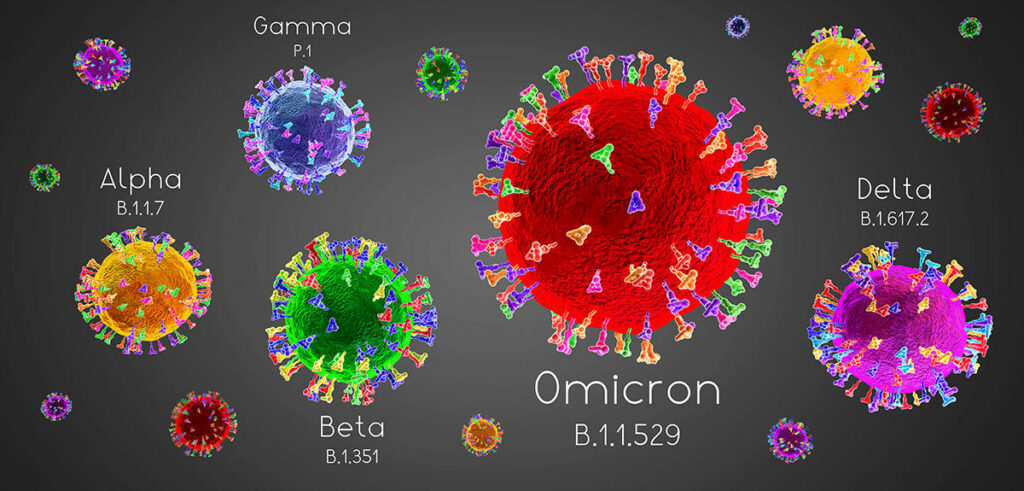Manas Dasgupta
NEW DELHI, April 6: The first case in India of a new Coronavirus variant XE believed to be more transmissible than Omicron, has been detected Mumbai on Wednesday. A 50-year old fully vaccinated female costume designer, who returned from South Africa in February, has been found to be variant XE infected, the Brihanmumbai Municipal Corporation (BMC) has said in a media release. She had tested Covid positive on March 2.
One case of the Kappa variant has also been detected. The patients with the new variants of the virus don’t have any severe symptoms so far. A civic health official said the XE mutant appeared to be 10% more transmissible than the BA.2 sub-variant of Omicron. So far, BA.2 was deemed to be the most contagious of all the COVID-19 variants. The World Health Organisation has also said the latest mutant may be more transmissible than the previous ones.
The Mumbai civic official said the results came in genome sequencing of 376 samples, the 11th batch of testing in genome sequencing lab. Of the 230 samples from Mumbai, 228 samples are of Omicron variant, while one was found to be Kappa variant and another XE variant. The condition of the patients infected with the new strains of the virus was not serious, the official said. 21 of the total 230 patients had to be hospitalised, though none of them needed oxygen or intensive care. 12 of those hospitalised were unvaccinated and nine had taken both doses.
The XE variant is a mutation of the BA.1 and BA.2 Omicron strains, referred to as a “recombinant.” Recombinant mutations emerge when a patient is infected by multiple variants of Covid. The variants mix up their genetic material during replication and form a new mutation, experts have said. As per the initial studies, the XE variant has a growth rate of 9.8% over that of BA.2, also known as the stealth variant because of its ability to evade detection.
The new strain was detected in the UK at the start of the New Year. Britain’s health agency said on April 3 that XE was first detected on January 19 and 637 cases of the new variant have been reported in the country so far.
“Early-day estimates indicate a community growth rate advantage of 10 percent as compared to BA.2, however, this finding requires further confirmation,” the WHO had said.
The women found to be infected with XE variant on arrival in Mumbai from South Africa on February 10 was asymptomatic and had tested negative. “But on March 2, in a routine testing, conducted by Suburban Diagnostics, she was found positive and was quarantined in a hotel room,” a BMC statement read. Within 24 hours, she turned negative on her next day’s test.
Later, the BMC in its eleventh batch of genome sequencing at the civic-run Kasturba Hospital, detected her with the new variant — XE subtype. A total of 230 samples were sequenced, of which 228 samples were identified with Omicron.
Speaking on the development, Covid-19 task force member Dr Shoshana Joshi assured that there is no need to panic. “As it is a mutation of Omicron, which doesn’t involve lungs, it is believed that the XE variant will not cause severe infection. But there is a need to use masks, especially at crowded places,” he said.
India on Wednesday reported 1,086 new Covid cases and 71 fatalities taking the total tally of Covid-19 cases to 4,30,30,925 and toll to 5,21,487, the Union Health Ministry said on Wednesday. The number of active cases dipped to 11,871. The active cases comprise 0.03 per cent of the total infections, while the national Covid-19 rate remained at 98.76 per cent, the ministry said.
Last week, the World Health Organisation had notified that a new strain of the Covid-19 Omicron variant, first detected in the UK, appears to be more transmissible than previous strains of the Coronavirus while asserting that Covid-19 remains a public health emergency of international concern and warning that it is “too early” to reduce the quality of surveillance and drop all guards.

